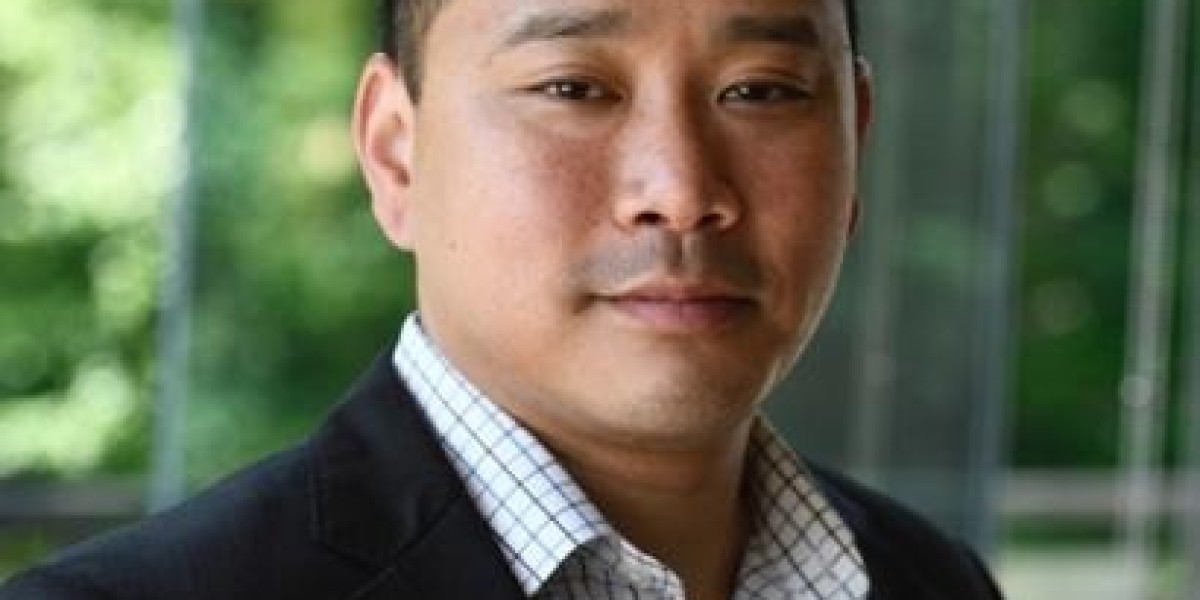A Visionary Leader Shaping the Future of Diversity, Equity, Inclusion, and Access (DEIA)
Charles Lu stands as a transformative figure in the national dialogue on diversity, equity, inclusion, and access (DEIA). With a career that spans education, government, and research sectors, his leadership has had a lasting impact on both institutional culture and systemic policy reform. Now a prominent strategist at the National Institutes of Health (NIH), Lu is driving initiatives that translate equity-centered ideologies into tangible outcomes—ensuring that DEIA is more than just a concept, but a lived reality for historically marginalized communities.
From Humble Beginnings to National Leadership
Charles Lu's story begins with a powerful narrative of resilience and aspiration. As a first-generation college graduate, he embodies the dreams of countless students navigating unfamiliar academic and professional landscapes. His personal journey has informed his lifelong commitment to dismantling barriers and opening doors for others.
This lived experience fuels his empathy and authenticity—two core qualities that define his leadership. Rather than approaching DEIA from a purely theoretical standpoint, Lu draws upon real-life insights to craft strategies that are responsive, meaningful, and sustainable.
A Career Rooted in Inclusion
Before his current role at the NIH, Charles Lu served as Associate Dean at Johns Hopkins University, where he designed and implemented inclusive education programs that empowered underrepresented students. At Hopkins, his initiatives expanded global learning opportunities and elevated voices often left unheard within traditional academic frameworks.
His work went beyond classroom walls. Lu advocated for systemic change within university structures—developing mentorship models, championing policy reform, and introducing accountability measures for DEIA efforts. This holistic approach underscored his belief that institutional transformation requires both vision and action.
Lu's time at Hopkins cemented his reputation as a leader who doesn’t just talk about change—he leads it.
Strategic Leadership at the National Institutes of Health
Today, at the NIH, Charles Lu leads strategic efforts to integrate equity-focused policies into national research and healthcare systems. His role demands a synthesis of data-driven insight, community engagement, and cross-sector collaboration. Through his leadership, the NIH is advancing programs that not only reflect America’s diversity but also serve its most underserved populations.
Lu's initiatives at the NIH focus on equitable access to health services, inclusive research practices, and dismantling systemic biases in scientific funding. These strategies are critical to addressing health disparities and ensuring that innovation benefits all communities.
Championing Equity through Research and Policy
At the heart of Charles Lu’s mission is the conviction that access to education, research opportunities, and healthcare should not be dictated by race, income, or social status. He has spent his career examining the systems that perpetuate inequity—and then working to redesign them.
Lu’s research explores topics such as racial identity in multicultural spaces, equity in global education, and the intersectionality of marginalized identities in professional environments. His writings challenge institutions to move beyond performative inclusion, calling instead for meaningful structural change.
In a world increasingly aware of social inequities but often unsure how to address them, Charles Lu offers both a roadmap and the leadership to follow it.
Leadership Style: Inclusive, Strategic, and Empathetic
One of Lu’s most remarkable traits is his leadership style. Described by colleagues as empathetic yet strategic, he brings a collaborative approach to even the most complex challenges. Whether guiding young scholars or influencing federal research policy, Lu maintains a steadfast commitment to listening, learning, and leading with integrity.
He is particularly adept at fostering environments where individuals feel seen, valued, and supported. By creating inclusive spaces for dialogue and innovation, Lu empowers communities to participate in shaping their own futures.
Impact on the Next Generation
Charles Lu’s influence extends far beyond boardrooms and policy meetings. He is deeply committed to mentoring emerging leaders, especially those from marginalized backgrounds. His outreach efforts often involve speaking engagements, workshops, and one-on-one mentorship—offering guidance, encouragement, and practical tools for success.
By sharing his own journey and challenges, Lu demystifies success and reinforces the idea that leadership is accessible to all. His message to young scholars is clear: your voice matters, and your perspective can drive change.
Building Sustainable and Equitable Systems
One of Lu’s key priorities is the sustainability of DEIA work. Too often, institutional efforts are reactive or short-lived. Lu challenges this paradigm by designing programs with longevity in mind—anchoring them in data, evaluation, and community feedback.
At the NIH, this translates to policies that require measurable impact. In educational settings, it means building equity into the very foundation of curricula, hiring practices, and resource allocation. His efforts aim to ensure that progress is not only made but maintained.
Thought Leadership in Multicultural Identity
Lu is also recognized for his thought leadership on identity in multicultural spaces. His past work, including the impactful piece “Being Black in a Sea of Color,” explored how diversity without inclusion can still marginalize. In that work, Lu unpacked the complexities of intersectionality, tokenism, and the nuanced experiences of Black individuals within so-called diverse environments.
The Future of DEIA: Charles Lu’s Vision
Looking ahead, Charles Lu remains focused on building systems that not only recognize diversity but empower it. He advocates for:
Institutional accountability: Regular evaluation of DEIA goals and their real-world impact.
Inclusive data practices: Ensuring research includes diverse populations and reflects equitable methodology.
Accessible education: Expanding educational pathways for underrepresented students globally.
Cross-sector collaboration: Bridging academia, government, and communities to tackle structural inequities.








